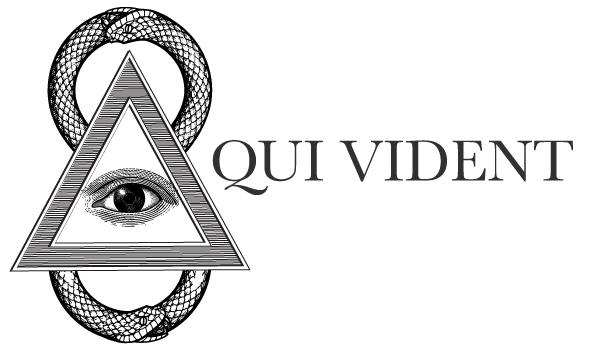Part II: Systematic Theology
Prolegomena
Chapter 1: Theology Proper
Chapter 2: Hierology
Chapter 3: Cosmology
Chapter 4: Anthropology
Chapter 5: Soteriology
Chapter 6: Ecclesiology
Chapter 7: Teleology
Chapter 8: Eschatology
Hierology
[introduction needed]
The Nature of Revelation
Natural vs Special Revelation
Thelema is found within two aspects of revelation: that is, in both a natural (general) revelation and a special (specific) revelation. This isn’t some new idea. All revelation through history has been upheld in pretty much the same manner. The only difference we have with Thelema is that it is the first truly universal revelation to humanity. As Crowley says, it "is the first Law ever given to man which is a true Law for all men in every place and time."[1]
Natural (General) Revelation
A natural (general) revelation is that which is all around us. It is not specific to any individual, group, society, or culture. It is a natural phenomena that exists in the same manner and to the same end that "bid Stars to shine, Vines to bear grapes, Water to seek its level."[2] The natural (general) revelation itself is not bound to any particular form only that any form it takes will radiate from the Law itself in the four rays of Light, Life, Love, and Liberty. You will find these concepts are directly related to any kind of mythic descriptor that is valid in reference to Thelema. Those who claim Thelema is a "force of nature" are referring specifically to this quality as general revelation. When you see Thelema referenced as "like The Tao" or "The Western Tao," it is as an analogy to this natural revelation.
Special (Specific) Revelation
A special (specific) revelation means pretty much just that: a specific revelation to a specific person or persons in a specific time and location within history. While there may be other debatable texts that are found within the doctrinal reaches of the new aeon, the only source and simple surety we have that defines the special revelation of the Law of Thelema is Liber AL vel Legis, the Book of the Law. Quite frankly, everything else is an add-on. Even the additional so-called "Class A" texts inspired by Crowley himself as additional texts, despite their incredibly inspirational nature, are specific to Crowley and his old aeon perceptions of the Law and its adjacent practices and beliefs.
The Book of the Law
[material here]
Theology vs Doctrine
See Doctrine
Personal Thoughts
There are those who have weaponized the Holy Books [sic]. But it’s more than that, I think, in the manner of being emotionally limited to only those concepts that are considered "occult." There is no pragmatic use of the Law of Thelema by such individuals. They have no concept of what it takes to change the world around them—individually or corporately.
The only pause I make is this, that mine own Holy Guardian Angel, Aiwaz [...] spake in Book Seven and Twenty, saying ... (NC to AL 2.27)
Ignoring this particular case of inconsistency of Crowley in regard to the nature of the HGA, how can the Guntherites claim that all Class A is "revealed" (and specifically by V.V.V.V.V.) when Crowley specifically states otherwise—at least of one particular Class A text?
Furthermore, the praeterhuman intelligence from whom [Crowley] received the Word was none other than the Chief Adept [V.V.V.V.V.] he would later consider to be the "Secret Master," whose words are revealed within the Holy Books of Thelema.[3]
Emphasis: "… whose words are revealed within the Holy Books of Thelema."
This is the Guntheran dogma that all the Holy Books were the revealed words of V.V.V.V.V.—despite the fact that Crowley said otherwise.
When someone posts a quote from the Holy Books, I’m going to start posting, "But what does it mean to you .. pragmatically speaking? And then what do you do with it? How do you share what it means to you with me (or anyone)? How does someone put that into practice? How do you apply that in real life?"
If you really want to know how arbitrary the "Class" system is:
Liber I originally was a Class B document, then was changed to Class A. Liber Os Abysmi was B, then C. Liber Turris went from B to D. Then you have Liber LXI that was originally Class A, then Class B, then Class D.
But if you think about the implications of a Class A and the sudden claim these days by .. some .. that all Class A, and not just Liber AL, are "received," then you also have to work through the implications of what Liber Magi itself going from a "mere" Class B up to a Class A several years later or LXI's downfall from Class A to Class D.
I think that one of the major issues that today’s Thelemites face is a misunderstanding on available source material. Unlike Christians who believe that every book in the Bible is the inspired Word of God, we are not necessarily bound by such restrictions. In fact, whereas the Psalms seem like some great little ditties (though without a beat, I’m not sure they’re any good to dance to), and the Proverbs have some cool little quips, and Song of Solomon reads more like a sexual guidebook for new lovers, I’m disappointed that more Thelemites haven’t taken the time to actually notice what similar correspondences we have within our grasp.
Attribution
No part of this publication may be used or redistributed for any purpose without the express prior written consent of the author.
Canons of Thelemic Philosophy & Religion © 1996-2024 by Qui Vident.

Comments
If you wish to comment about the materials here, feedback is welcome. Feel free to email questions, comments, and concerns regarding the Canons to curate@quivident.co.